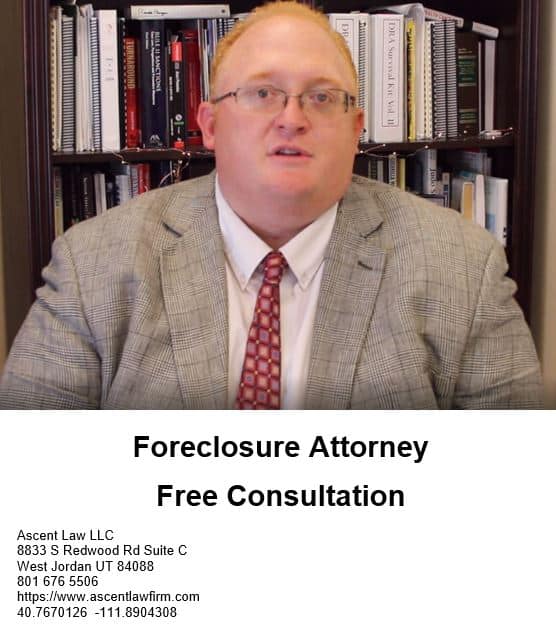
When a couple is divorcing or separating, they generally have a variety of assets that will need to be divided between them. Assets might include a home or other real property, a business, bank accounts, or retirement accounts.
What Kind Of Assets Are Divided In A Divorce?
• Money: You and your spouse likely have some financial assets. These financial assets generally include bank (your checking and savings), investment accounts, stocks and bonds, mutual funds, and cash. Accounts held in your minor children’s names or jointly with another person should also be considered. You may be able to find a list of all money accounts by reviewing the 1099 Forms used to complete your Income Tax Forms.
• Home: Your home is an asset, as is any other real property (property that does not generally move, like land or a building). If you are not sure of what real property you and your spouse own, you may be able to find real property by checking with the Assessor’s office to find out if a deed to the property has been recorded. If you or your spouse owns a business, the real property owned by or through that business is also an asset.
• Debt Repayment: If you or your spouse loaned money to someone, and you are owed repayment of that debt still, that debt is an asset.
• Deferred Compensation: Occasionally, an employee accumulates deferred compensation through his or her employment. This deferred compensation might be a bonus that accrues over time and is paid later (for example, a year-end bonus), an option to purchase stock, or a raise. A contract to perform something for compensation may also be an asset.
• Retirement Accounts: Retirement accounts are assets. This includes 401(k) accounts and pensions. The laws are different in every state, so it is advisable to consult a divorce attorney when dividing your retirement accounts, and you should also consult federal tax laws relating to the division of a retirement account.
• Business: A business, along with the property owned by that business, including accounts receivable, is an asset. You should consult the laws of your state to determine how a professional practice is valued in a divorce.
• Taxes: Tax refunds, or carryover tax losses are also assets that you should keep in mind. There are specific rules for which tax credits you can claim.
• Credit Cards: A credit card account can include assets that should be divided. Some credit cards accumulate airline miles or points for other purchases. Those, and your frequent flyer miles, are an asset as well.
• Patents, Copyrights, Trademarks, etc.
• Vehicles, RVs, Boats, etc.: Because these assets are easily moved, you should document them early in your divorce.
• Timeshares
• Collections, Antiques, and Artwork: Collections, antiques, and artwork around your house are assets that are sometimes quite valuable. Because these assets may be smaller and easy to move, they are more likely to disappear. You should make a record of them early in your divorce process.
• Household Goods and Furnishings: Your regular household goods and furnishings are also assets. In many states, your household goods and furnishings will be valued at “yard sale price.” You should consult the laws of your state to determine how these assets will be valued.
• Insurance Policies: Life insurance policies may be an asset. Some insurance policies have a cash value (for example, whole life insurance) because they develop a savings as premiums are paid. For whole life insurance policies, the insured may cash out the policy or take loans on the policy. A term life insurance policy (those policies for only a specific period of time) does not have a cash value, but may be used to secure future support payments.
• Degree or professional license: If and how degrees and licenses are valued as assets varies by state. Consult your divorce attorney to determine if these are an asset in the divorce.
How Do I Know The Value Of My Assets?
For some assets, you will be able to determine the value fairly easily (a checking account with a specific amount held in it, for example). For other assets, you may need to have an appraisal performed or to have an accountant determine the value. You should keep in mind whether the cost of an appraisal will be worth your while when valuing your assets. You should also consult the laws of your state to determine what you will need to do in order to be able to present or prove your values to the court.
What About High Asset Divorces?
If your divorce involves high assets or high net worth, the division of assets will be much more complex. You will need to consult with a divorce attorney who has extensive experience in the protection, valuation and distribution of significant assets.
What Happens in a Divorce?
Although divorce is common throughout the United States, the divorce process varies depending on the couple’s situation. Short-term marriages without children or property typically result in a less complex and time-consuming divorce than long-term marriages with significant property entanglements, marital debt, and minor children. Additionally, divorcing couples who work together to negotiate the terms of the divorce (child custody, child support, property division, debt allocation, and spousal support) will experience a less expensive and less stressful divorce than couples who can’t agree or refuse to work together.
Step One: Filing the Divorce Petition
Whether both spouses agree to the divorce or not, before any couple can begin the divorce process, one spouse must file a legal petition asking the court to terminate the marriage. The filing spouse must include the following information:
• a statement which informs the court that at least one spouse meets the state’s residency requirements for divorce
• a legal reason—or grounds—for the divorce, and
• any other statutory information that your state requires.
Residency requirements vary depending on where you live. States usually require at least one spouse to live in the state anywhere from 3 months to 12 months, and in the county where the spouse files at least 10 days to 6 months before filing the petition. Divorcing spouses must meet the state’s residency requirement before the court can accept the case. Grounds for divorce vary from state-to-state. However, all states offer divorcing couples the option to file a no-fault divorce. No-fault divorce is a streamlined process that allows spouses to file a divorce petition without listing a specific reason or placing blame on either spouse. If your spouse committed marital misconduct or caused the breakup, some states allow parties to claim “fault” for the divorce, like adultery or neglect. If you’re unsure whether you should file a no-fault or fault divorce, contact an experienced family law attorney in your state for guidance.
Step Two: Asking for Temporary Orders
Courts understand that the waiting period for divorce may not be possible for all couples. For example, if you are a stay-at-home parent that is raising your children and dependent on your spouse for financial support, waiting for 6-months for the judge to finalize your divorce probably seems impossible. When you file for divorce, the court allows you to ask the court for temporary court orders for child custody, child support, and spousal support. If you request a temporary order, the court will hold a hearing and request information from each spouse before deciding how to rule on the application. The judge will usually grant the temporary order quickly, and it will remain valid until the court orders otherwise or until the judge finalizes the divorce. Other temporary orders may include a request for status quo payments or temporary property restraining orders. Status quo orders typically require the breadwinner to continue paying marital debts throughout the divorce process. Temporary property restraining orders protect the marital estate from either spouse selling, giving away, or otherwise disposing of marital property during the divorce process. Restraining orders are usually mutual, meaning both spouses must follow it or risk being penalized by the court. If you need a temporary order but didn’t file your request at the time you filed for divorce, you’ll need to apply for temporary orders as quickly as possible. When you file for divorce, the court allows you to ask the court for temporary court orders for child custody, child support, and spousal support.
Step Three: Serve Your Spouse and Wait for a Response
After you file the petition for divorce and request for temporary orders, you need to provide a copy of the paperwork to your spouse and file proof of service with the court. Proof of service is a document that tells the court that you met the statutory requirements for giving a copy of the petition to your spouse. If you don’t properly serve your spouse, or if you neglect to file a proof of service with the court, the judge will be unable to proceed with your divorce case. Service of process can be easy, especially if your spouse agrees with the divorce and is willing to sign an acknowledgment of service. However, some spouses, especially ones that want to stay married or make the process complicated, can be evasive or try anything to frustrate the process. The easiest way to ensure proper service is for the filing spouse to hire a professional who is licensed and experienced in delivering legal documents to difficult parties. The cost is usually minimal and can help prevent a delay in your case. If your spouse retained an attorney, you could arrange to have the paperwork delivered to the attorney’s office. The party who receives the paperwork (usually titled “defendant” or “respondent”) must file an answer or reply to the divorce petition within a prescribed amount of time. Failure to respond could result in a “default” judgment against the non-responding spouse, which can be complicated and expensive to reverse. The responding party has the option to dispute the grounds for divorce (if a fault divorce), the allegations in the petition, or assert any disagreements as to property, support, custody, or any other divorce-related issues.
Step Four: Negotiate a Settlement
In cases where the parties have differing opinions on important topics, like child custody, support, or property division, both spouses will need to work together to reach an agreement. Sometimes the court will schedule a settlement conference, which is where the parties and their attorneys will meet to discuss the status of the case. The court may schedule mediation, which is where a neutral third-party will help facilitate discussion between the spouses in hopes to resolve lingering issues. Some states require participation in mediation, while others do not. However, mediation often saves significant time and money during the divorce process, so it’s often a good route for many divorcing couples.
Step Five: Divorce Trial
Sometimes negotiations fail despite each spouse’s best efforts. If there are still issues that remain unresolved after mediation and other talks, the parties will need to ask the court for help, which means going to trial. A divorce trial is costly and time-consuming, plus it takes all the power away from the spouses and puts it in the hands of the judge. Negotiations and mediation sessions allow the couple to maintain control and have more predictable results than a divorce trial, so it’s best to avoid a trial if possible.
Step Six: Finalizing the Judgment
Whether you and your spouse negotiated throughout the divorce process, or a judge decided the significant issues for you, the final step of divorce comes when the judge signs the judgment of divorce. The judgment of divorce (or “order of dissolution”) ends the marriage and spells out the specifics about how the couple will allocate custodial responsibility and parenting time, child and spousal support, and how the couple will divide assets and debts. If the parties negotiated a settlement, the filing spouse’s attorney typically drafts the judgment. However, if the couple went through a divorce trial, the judge will issue the final order. When a couple divorces in Utah, they must divide their marital property equitably. If they’re not able to negotiate a settlement, they’ll have to ask the court to divide the marital property. The rule about equitable division doesn’t mean the division must be equal. Instead, the court has wide latitude to decide on a fair division based on each spouse’s contribution to the marital property and on each person’s projected future needs.
Marital Property and Separate Property
In a divorce, the distribution of property depends on which property belongs to the marriage – marital property – and which property belongs to each of the two spouses – separate property. Generally, marital property is property acquired or earned during the marriage, including earned income. Property used for the benefit of the marriage, even if it started out as separate property, may also be considered marital property. Separate property includes anything that belonged to one spouse before marriage and was kept separate throughout the marriage. It could also include property given only to one spouse during the marriage, like a gift made to the husband alone or an inheritance that the wife received from a member of her family. The most common types of property divided at divorce are real property like the family home, personal property like jewelry and clothing, and intangible financial assets like income, dividends, and benefits. All of the marital property must be divided between the spouses when the marriage ends, and marital debts must also be divided. The spouse who owns separate property gets to keep that property–it can’t be awarded to the other spouse.
Equitable Division of Property
Rather than rely on a hard and fast set of rules when splitting property between spouses, judges in Utah have discretion to consider a variety of factors unique to each marriage. Despite the court’s relative freedom to decide what is fair, it should always consider the length of the marriage and how the spouses acquired the marital property. It should also look at the conditions each spouse will face alone after the divorce, such as medical needs, and childcare costs. Each spouse’s level of education and earning potential are also relevant. Judges may divide property unequally after taking these factors, and others, into account.
Alimony Determined as Part of Equitable Division
In Utah, courts consider alimony as part of the equitable division of marital property. Alimony is a payment from one spouse to the other to help the recipient spouse maintain a lifestyle as close as possible to the standard of living the parties enjoyed during the marriage–and specifically, at the time they separated. If it is more equitable, the court might base alimony on the standard of living at the time of trial. The court also has the option to base alimony on the standard of living at the time of marriage if the marriage was short and there are no children. To determine the amount of alimony due, the court may consider either spouse’s fault in the deterioration of the marriage. The court also evaluates the recipient spouse’s financial resources, earning capacity, and whether that spouse worked in a business owned or operated by the obligated spouse (the one who has to pay). Additionally, the court looks at the obligated spouse’s ability to pay, the length of the marriage, who has custody of the children, and whether the obligated spouse’s earning capacity increased because the recipient spouse contributed to education or training during marriage. If one spouse is at the threshold of a major change in income because of the collective efforts of both spouses, that change also will be a factor in how the court divides the marital property and in the alimony award. Conversely, for a short marriage, the court could attempt to put the spouses back where they started as newlyweds, in terms of financial resources. Generally, alimony payments can last only as long as the number of years the marriage existed.
Marital Settlement Agreements
Throughout the process, divorcing spouses have opportunities to agree between themselves on what is a fair division. They can decide to sell certain assets and divide the proceeds, while allowing each spouse to keep certain other assets. Whatever agreements the spouses make, they can submit a marital settlement agreement to the court and a court will generally accept the agreement without further involvement. On the other hand, if the spouses cannot work together, or if there are certain items of property that they cannot agree on, then the court will decide for them.
Divorce Attorney
When you need a Utah Divorce Attorney, please call Ascent Law LLC for your free consultation (801) 676-5506. We want to help you.
8833 S. Redwood Road, Suite C
West Jordan, Utah
84088 United States
Telephone: (801) 676-5506
Recent Posts
Apartment Building Investor Attorney
Divorce Mediation Salt Lake City
Residential Property Foreclosure
{
“@context”: “http://schema.org/”,
“@type”: “Product”,
“name”: “ascentlawfirm”,
“description”: “Ascent Law helps you in divorce, bankruptcy, probate, business or criminal cases in Utah, call 801-676-5506 for a free consultation today. We want to help you.
“,
“brand”: {
“@type”: “Thing”,
“name”: “ascentlawfirm”
},
“aggregateRating”: {
“@type”: “AggregateRating”,
“ratingValue”: “4.9”,
“ratingCount”: “118”
},
“offers”: {
“@type”: “Offer”,
“priceCurrency”: “USD”
}
}
Ascent Law St. George Utah Office
Ascent Law Ogden Utah Office
The post Top Asset Division Divorce Attorney first appeared on Michael Anderson.
from Michael Anderson https://www.ascentlawfirm.com/top-asset-division-divorce-attorney/
from
https://grum193.wordpress.com/2020/10/29/top-asset-division-divorce-attorney/





